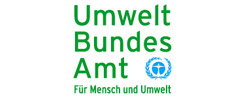EU should ban mercury export
US study shows 300.000 - 600.000 babies born each year have damage
13.09.2006 |Sascha Gabizon
Brussels, 8 September 2006- Environmental and health NGOs opposed to mercury today urged the European Commission to abandon its deadlock and finally proceed with a delayed EU mercury export ban and secure storage of surplus mercury, in line with the EU’s Mercury Strategy of 28 January 2005. “We’ve been waiting for the Commission to make a proposal since at least the start of the year. Every month it delays, Europe is polluting the planet with one of the most toxic substances known to man”, said John Hontelez, Secretary General of the European Environmental Bureau.
All parties agree that there is a pressing need for an EU mercury export ban. As long ago as June 2005, EU Environment Ministers accepted the need for the ban and agreed on the strategy. In March this year the European Parliament also demanded an export ban. The move would be in line with the decision of UNEP’s 23rd Governing Council, where the EU told world governments it intended to halt exports of this dangerous substance.
“The EU is the world’s largest mercury exporter, and most of its mercury goes to developing countries.” said Ravi Agarwal of Toxics Link, India, “This dangerous neurotoxin is often haphazardly used and released, contaminating workers, their families, local communities and global food supplies. The EU must accept it has a moral and economic duty to take the lead in dealing with global mercury problems.”
“Strong EU leadership will not only encourage more countries to reduce their mercury consumption, it will also encourage global trade agreements, which are clearly needed”, said Zuleica Nycz, ACPO, Brazil. “Banning mercury exports will help reduce demand by increasing prices and thus encouraging more efficient use and reduced releases, with no adverse economic impact. , .”
The NGOs stress that the proposed export ban should cover metallic mercury, mercury compounds and mercury-containing products, which are, or soon will be, subject to use and marketing restrictions within the EU. The EU should avoid double standards and allow all the world’s citizens to be similarly protected. The ban on EU mercury exports should be implemented as soon possible, preferably by 2008 , but certainly not later than 1 January 2011. The European Parliament’s resolution (March 2006) demanding implementation by 2010 must also be borne in mind.
“A strong and clear EU position is essential to confirm the global actions presented in this Community Strategy”, said Michael Bender of the Mercury Policy Project/Ban Mercury Working Group, “which must send a clear message to the world that mercury emissions, supply and demand should be reduced to an absolute minimum, as rapidly as possible, and in the interim, measures should be taken to protect the health of people who are most at risk, particularly women of childbearing age and children.”
Mercury drifts far and wide through the atmosphere, contaminating both European and global food supplies at levels which seriously risk human health, wildlife and the environment. “We shouldn’t underestimate the value of a strong EU commitment to tackling mercury problems globally”, said Génon Jensen, Executive Director of European Public Health Alliance Environment Network. “This is a straightforward opportunity to reduce health risks to millions of EU citizens, and many more globally, that we absolutely cannot afford to miss.”
The EU Extended Impact Assessment reveals that some 3-15 million people in Europe have mercury levels around the recommended limit and many of them have levels ten times as high, which are known to cause serious neurodevelopmental effects. Although the EU assessment does not calculate the costs of such contamination, a recent study estimates that between 300,000-600,000 babies born each year in the USA suffer from impaired neurological development which is due directly to methyl mercury exposure, and which costs the economy an estimated US$8.7bn a year in lost earnings.


































